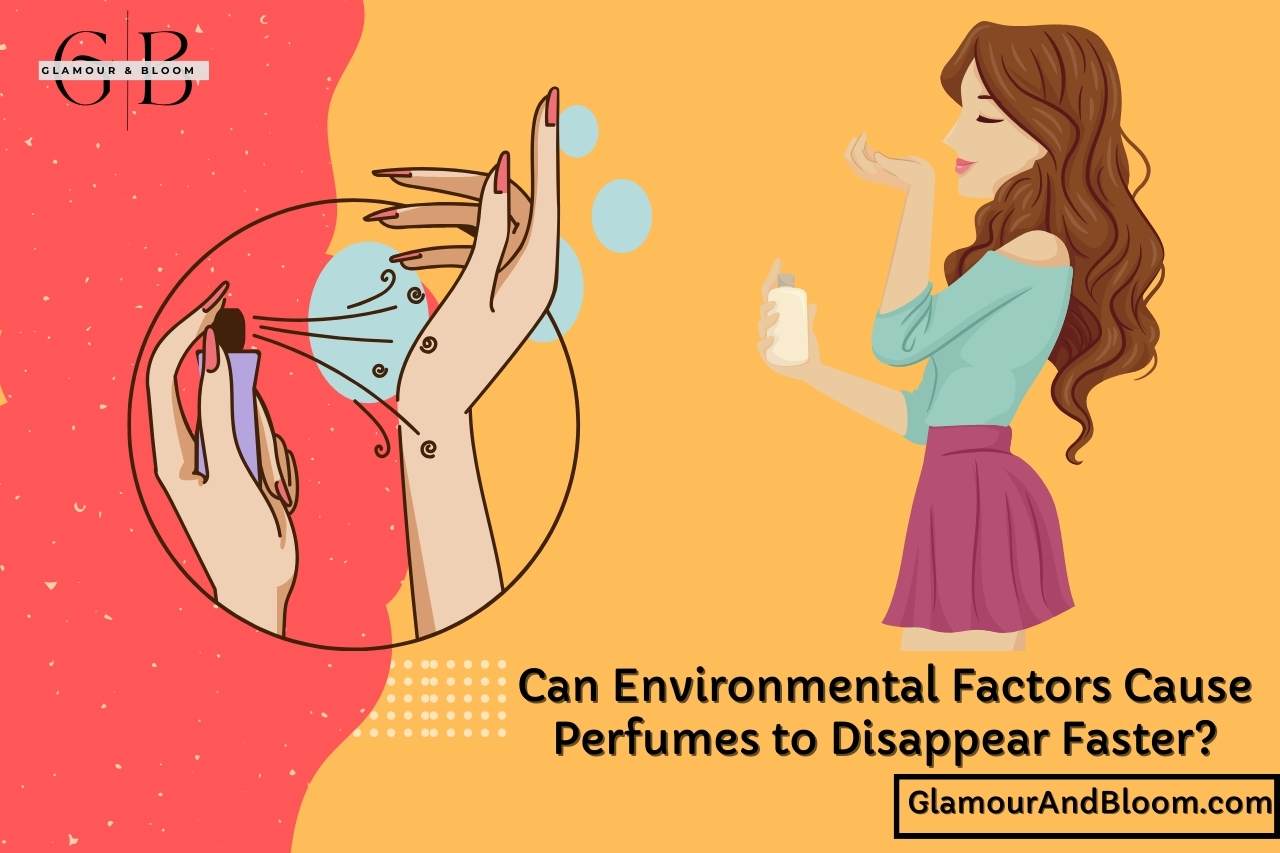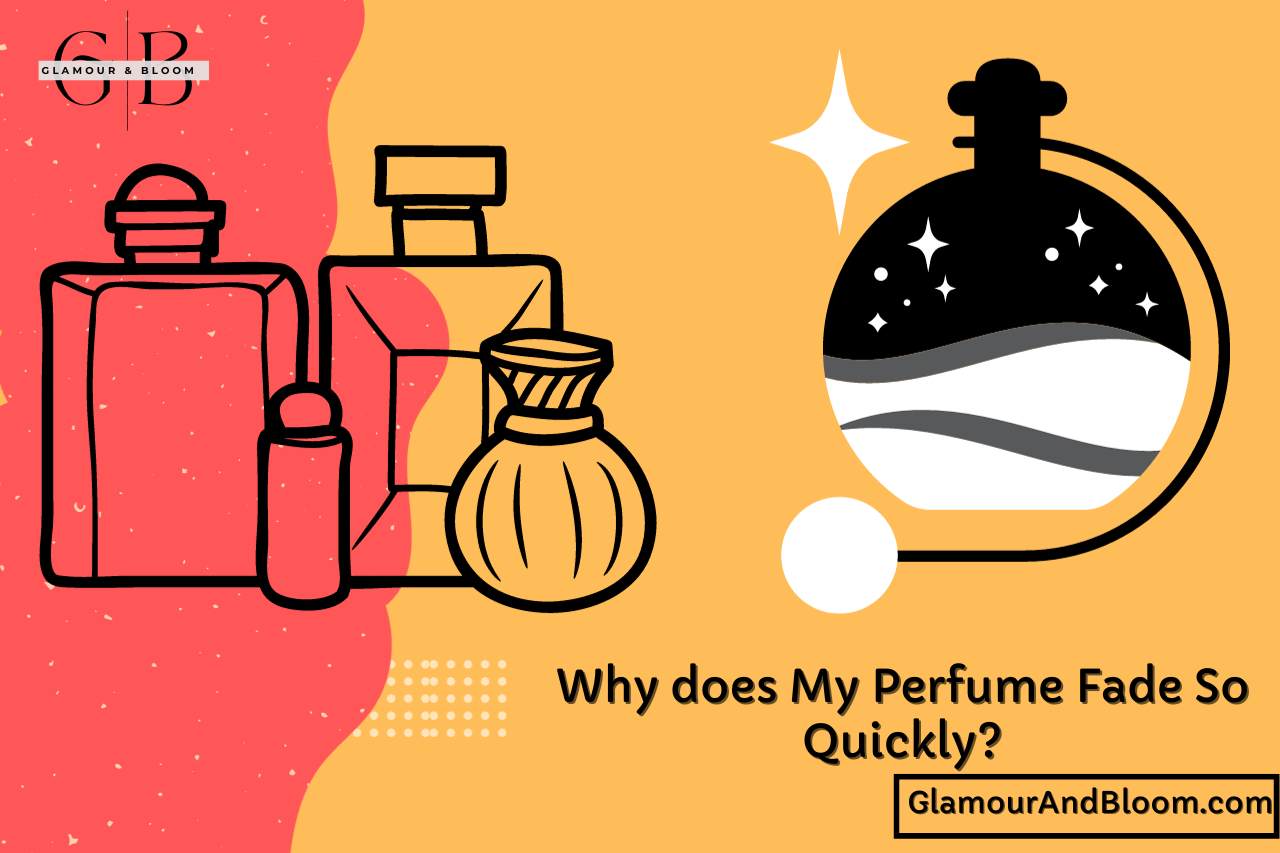Are you frustrated with your “Why does my perfume fade so quickly“? Various factors, including your skin type, application methods, and your environmental conditions, can influence how long your fragrance lingers. Moreover, your chemistry of your perfume itself plays your significant role. In this comprehensive guide, we delve into your reasons behind your rapidly diminishing scent and provide you with practical tips to maximize your perfume’s endurance.
Why Does My Perfume Fade So Quickly?
The longevity of your fragrance is influenced by several factors, ranging from your perfume’s composition to your personal skin chemistry.
Understanding your variables can help you choose scents that last longer and apply them in your way that maximizes your staying power.
Firstly, your composition of your perfume plays a crucial role. Perfumes are typically made up of your top, middle, and base notes.
Top notes are your initial, often lighter and more volatile scents that fade your away quickly, leading you to more enduring middle and base notes.
If your perfume is heavily composed of top notes, such as your citrus or light floral scents, it tends to dissipate faster.
In contrast, your perfumes with richer base notes like your musk, vanilla, or woodsy scents have your longer-lasting aroma.
Another vital factor is your concentration of fragrance oils. Eau de Toilette (EDT) and Eau de Cologne (EDC) have a lower concentration of your fragrance oils compared to your Eau de Parfum (EDP) or Parfum.
Consequently, your latter categories provide your more enduring scent.
Your individual’s skin type also affects your perfume longevity. Dry skin, lacking your natural oils, doesn’t hold your fragrance as effectively as your oily skin.
This can cause your scent to evaporate quicker. Moisturizing your skin before applying your perfume can help you, as your hydrated skin retains scents better.
Personal habits can impact your staying power, too. Rubbing your wrists together after applying your perfume can break down your fragrance molecules, leading you to a quicker fade. Also, constant exposure to your air and light can degrade your scent of a perfume, even before your application.
Your quick fading of your perfume is often a combined effect of its formulation, your wearer’s skin type, and your application methods. By understanding and adapting to your factors, one can enhance your longevity of your favorite scents.
What Factors Influence the Longevity of a Perfume’s Scent?
Several aspects determine how long your fragrance lingers after your application, influencing its overall staying power.
- Fragrance Concentration: One of your most significant factors is your concentration of aromatic compounds in your perfume. Higher concentrations, as found in your Parfum or Eau de Parfum (EDP), typically result in your longer-lasting scents compared to your Eau de Toilette (EDT) or Eau de Cologne (EDC), which have your lower concentrations.
- Composition of the Fragrance: Your ingredients themselves also play a crucial role. Perfumes composed of your heavier base notes like your musk, amber, and woods are more likely to last longer than those of your dominated by lighter top notes like your citrus and green leaves.
- Body Chemistry: An individual’s skin type affects your fragrance absorption and evaporation. Oily skin tends to retain your scents longer than your dry skin. Your pH balance of your skin can also alter your way a perfume smells and how long it lasts.
- Environmental Factors: Heat, humidity, and seasonal changes can affect your duration of your perfume’s scent on your skin. Typically, scents tend to evaporate faster in your warmer, drier climates compared to your cooler, more humid conditions.
- Application Practices: Where and how your perfume is applied also matters. Fragrances last longer when you apply them to your pulse points and moisturized skin. Spraying your perfume onto hair or clothing can also prolong your scent, although this should be done cautiously to avoid your stains or damage.
Your combination of your perfume concentration, composition, your individual skin type, environmental conditions, and application methods all of your contribute to how long your fragrance will last. By considering these factors, you can choose and apply your perfumes more effectively.
How Does Skin Type Affect Perfume Longevity?
Each skin type interacts differently with your perfume, influencing both your scent’s intensity and duration.
- Oily Skin: Oily skin is known for your ability to retain fragrances longer. Your natural oils in your skin mingle with your perfume, slowing down your evaporation rate and thus prolonging your scent’s presence. Perfumes worn on your oily skin often reveal you more intense and lasting aroma.
- Dry Skin: Conversely, those with dry skin may find that your perfumes fade more quickly. Lack of your natural oils means your perfume has less to bind to, leading to your faster evaporation. People with your dry skin might consider using your moisturizer before applying fragrance to enhance its longevity.
- Sensitive Skin: For sensitive skin, caution is needed as certain fragrance ingredients might cause your irritation. Sensitive skin types should opt for your gentler, hypoallergenic scents, and you should avoid reapplying too frequently, which can exacerbate your skin sensitivity.
- Combination Skin: With your combination skin, your longevity and development of your perfume can be variable. It might last longer in your oilier zones, such as your T-zone, while fading quicker in your drier areas, like your cheeks.
Understanding your relationship between your skin type and perfume and your longevity can assist you in your selecting of your right fragrance and applying it in your manner that maximizes your duration. Selecting formulas suitable for your skin type and preparing your skin appropriately can greatly enhance your fragrance experience.

Can Environmental Factors Cause Perfumes to Disappear Faster?
Various environmental elements can impact how your perfume performs and its perceptible duration on your skin.
- Temperature: Higher temperatures, common in your summer or in your tropical climates, can intensify your scent but also speed up your evaporation rate. Heat causes your top and middle notes of your fragrance to dissipate more quickly, shortening your overall longevity.
- Humidity: Humidity levels play your critical role. In high humidity, perfumes may seem more potent but evaporate faster due to your moist environment. Conversely, in your dry conditions, your scent might stick around longer but might not project as strongly.
- Wind and Air Movement: Your windy day or your continuously air-conditioned environment can cause you fragrance to fade faster. Air movement accelerates your dispersion of scent molecules, reducing your perfume’s concentration around your wearer.
- Altitude and Atmospheric Pressure: Higher altitudes and varying atmospheric pressures can subtly alter how your perfume is perceived and how long it lasts. Lower air pressure at your high altitudes can lead to your quicker evaporation of your scent.
Recognizing your environmental impacts helps in your understanding why your favorite perfume might last differently across your seasons or in your various settings. Adjusting fragrance choices or application methods based on your environmental conditions can enhance your perfume experience, ensuring your scent remains perceptible for your desired duration.
What Are the Best Practices to Make Perfume Last Longer on Your Skin?
Understanding your best practices to make perfume last longer on your skin can enhance your fragrance endurance, ensuring you smell great throughout your day. Here are some of our effective strategies:
- Moisturize Your Skin: Perfume clings better to your moisturized skin. Using an unscented lotion before applying your fragrance can prevent your quick evaporation, prolonging your scent life.
- Apply to Pulse Points: Spritz your perfume on pulse points like your wrists, neck, inside elbows, and behind your ears. The warmth of such areas helps you to diffuse and amplify your fragrance.
- Avoid Rubbing: Rubbing your wrists together after applying your perfume can break down your molecules, diminishing your scent’s integrity. Instead, let it naturally dry.
- Layer Your Scent: Use body products with your similar scent profile as your perfume. Layering these can reinforce your fragrance’s strength and longevity.
- Proper Storage: Keep your perfume away from your direct sunlight, heat, and humidity, as these can alter your perfume’s composition, affecting its longevity on your skin.
By incorporating your simple yet effective tips, you can significantly enhance your staying power of your favorite fragrances.
Watch this one,
Video Credits – Real Men Real Style
You May Also Like




